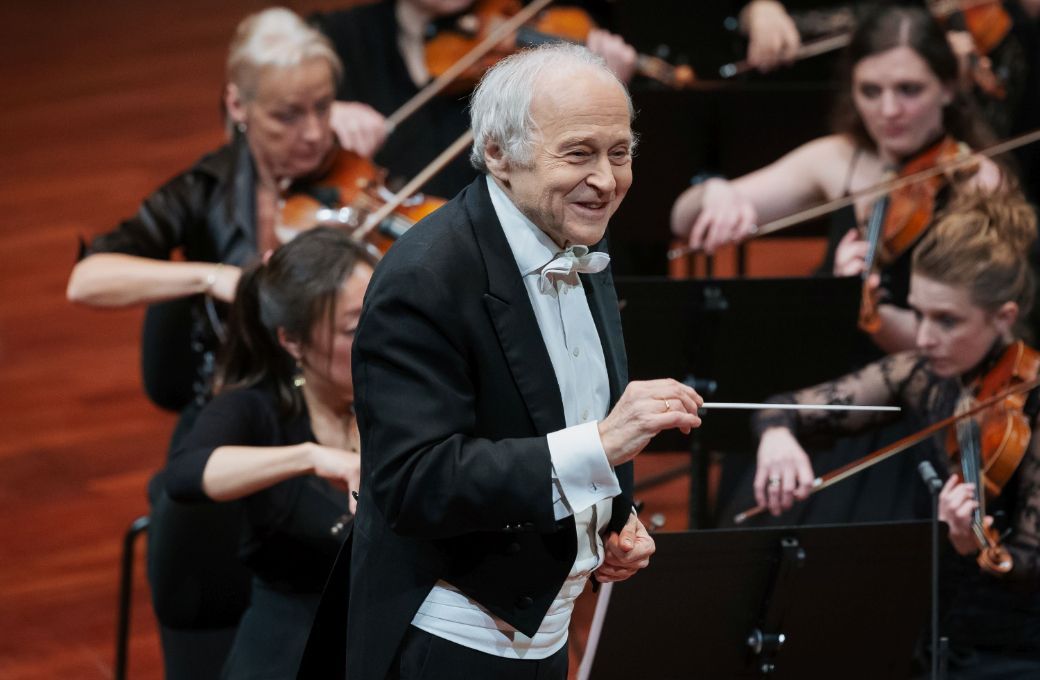Bidding adieu to the old year with a string of Fledermaus and Beethoven Ninth performances, and ringing in the new with waltzes and the like? There is a lot of comfort in such traditions, but there’s also the ever-present risk of things growing into a stale routine, a repetition merely for repetition’s sake.

Nothing could be further from the case when it comes to Ádám Fischer’s take on Die Schöpfung (The Creation) this year, the latest outing of a now 15-year-old tradition by Fischer and the Müpa for celebrating New Year’s Day. This performance was fresh, delightful and ethereal. That, this time round, Fischer helmed the Austro-Hungarian Haydn Orchestra, founded by Fischer himself and dedicated to performing the master’s works, probably didn’t hurt.
Central to Fischer’s interpretation was a genuine sense of wonder and enchantment. Under his baton, Haydn and Gottfried van Swieten's chronicling of Creation gained an almost fairytale-like quality, a wide-eyed sense of glee in marvelling at the slowly forming world. Much of this glee was felt in Fischer’s (scoreless) conducting, acrobatic and infectiously joyful. Though tending towards brisker tempi and a greatly dramatic articulation of crescendos, Fischer never rushed nor veered into anything overly bombastic; indeed, he took great care retaining balance between orchestra, chorus and soloists. His reading was more than happy to linger on moments of lyrical beauty, to great effect even at less expected places: the opening of “Mit Würd’ und Hoheit angetan” was almost startlingly gentle.
The Austro-Hungarian Haydn Orchestra responded to Fischer’s jocular enthusiasm with plenty of their own. From a darkly pulsating Chaos to the final (idiosyncratically hushed) Amen, the orchestra’s performance offered precise, meticulous phrasing and exuberantly colourful tone-painting, their bright, generously warm sound as ideal for revelling in the playful, humorous segments of Haydn’s score as it was for the full-bodied, resounding laudations of divine glory. Particularly memorable were the woodwinds, the clarinet solo in “Nun beut die Flur”, as well as the flutes throughout, rendered with delightful grace; while the cracking brass imitating roaring of lions and tigers was most amusingly played during Raphael’s “Gleich öffnet sich der Erde Schoß”. The Hungarian Radio Choir proved an ideal partner; their crisp, luminous tone felt perfectly tailored to Fischer’s style, and their performance embodied splendour without becoming overwhelmingly grandiose in this human-sized tale of Creation.
Among the soloist, Benjamin Appl was a luxurious Raphael/Adam. From the almost chant-like rendering of his opening recitative, his unwaveringly committed performance offered a sensational mix of Lied-like sensitivity to text, intelligent vocal phrasing and the arrestingly beautiful tone of his noble baritone. Mojca Erdmann’s diamantine soprano shone with suitably angelic clarity in Gabriel’s part, the archangel’s arias being dispatched with charming sweetness. In the second part, Erdmann’s touch of playfulness in her interactions with Appl’s Adam lent genuine humanity to Eve. Appl and Erdmann proved a dream team here, the tender, enchanting beauty of their duet “Von deiner Güt’” made time itself stand still. As Uriel, Gyula Rab offered a fittingly bright, jubilant tone and elegant singing, though he felt rather underpowered throughout. No matter: altogether, this was a most magical way to start the year.


